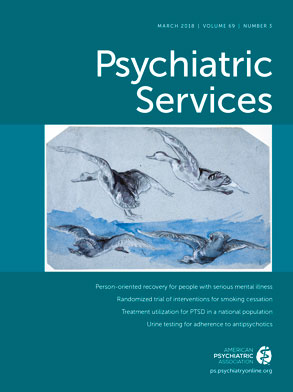When an individual faces a mental health crisis, minutes can feel like days. The excessive wait times many patients face when attempting to access psychiatric care are alarming. In Canada, the average wait time for a psychiatrist visit is 20 weeks; for residents of Newfoundland and Labrador, Canada’s easternmost province, the wait is 83 weeks! Rural Canadians face additional challenges, in that smaller communities often lack sufficient mental health services, and a trip to the nearest big city could entail a journey of hundreds or even thousands of kilometers.
With the advent of smartphones and greater connectivity, some providers have attempted to leverage new technology to deliver faster psychiatric care to patients. Videoconferencing allows patients to speak with providers from far-flung cities in real time, but these services face a number of drawbacks, including scheduling challenges, patients’ discomfort with being captured on video, and a need for high-speed Internet connections and (in some cases) expensive proprietary software.
The Champlain BASE (Building Access to Specialists through eConsultation) eConsult service takes a different approach. Using a secure online application, eConsult connects primary care providers (PCPs) and specialists asynchronously. That is, PCPs send questions about a patient’s care in the same way they might send an e-mail, attaching any additional files they deem relevant (images and test results, for example). Messages are then saved on the server, and specialists can log in when they have the time to do so, overcoming the need for the PCP and the specialist to connect in real time. Responses take two days on average, although the quickest turnaround time to date was only two minutes. PCPs and specialists can continue sending messages back and forth until the PCP closes the case. The service operates on any device with a Web browser and requires only 30 minutes of training to use. Two-thirds of cases are closed without the patient ever needing to see a specialist in person.
In its original design, eConsult was intended to link PCPs with a single specialty: endocrinology. Feedback from PCPs quickly expanded the scope of eConsult and has guided its growth ever since. From the five specialty groups that constituted its initial proof of concept in 2010 to the 109 currently available, every new specialty has been chosen by PCP demand. This organic growth has taken eConsult in surprising directions, with unexpected services gaining widespread usage.
Despite its success, the eConsult service has faced several barriers to its implementation and expansion, often on a policy level. A recent examination of policy factors influencing growth identified three areas where current policies—or lack thereof—impeded eConsult’s expansion to new jurisdictions: concerns about privacy, the need for new payment models, and interjurisdictional provision of care. In an effort to overcome these obstacles, members of the eConsult team have engaged with a range of stakeholders, including policy makers at the provincial and national levels, in order to develop workable solutions.
Some barriers are also more specialty specific. In the case of mental health services such as psychiatry, there was some initial doubt among providers that eConsult could provide adequate care to this particular patient group. Could something as complex as mental health care really be delivered electronically? PCPs seem to think so, given that psychiatry is currently the 12th most frequently consulted specialty group, receiving more cases than almost 90% of the services available through eConsult. Over a thousand cases have been completed to date, providing advice for the care of hundreds of patients without the need for an in-person psychiatric visit. Clinical questions are often about drug treatment for depressive, anxiety, and neurodevelopmental disorders. These patients benefit from quick access to specialist advice through their PCP without the costs, logistical challenges, and—in some cases—anxiety of seeing a new care provider, while freeing up space for patients who need an in-person visit with a specialist. Funding for eConsult is provided by the Ontario Ministry of Health and Long-Term Care through a combination of fee codes for primary care providers and time-based funding for the specialists.
In a recent position paper, the Canadian Psychiatric Association and the College of Family Physicians of Canada stressed the importance of collaboration between their disciplines, adding that mental health care providers should seek innovative ways to engage with PCPs. The eConsult service provides an ideal venue for such exchanges.

